We’ve all been there before — you inhale or ingest a little cannabis, expecting it to lull you into peace and serenity only to find your mind racing, overthinking the ins and outs of your entire day.
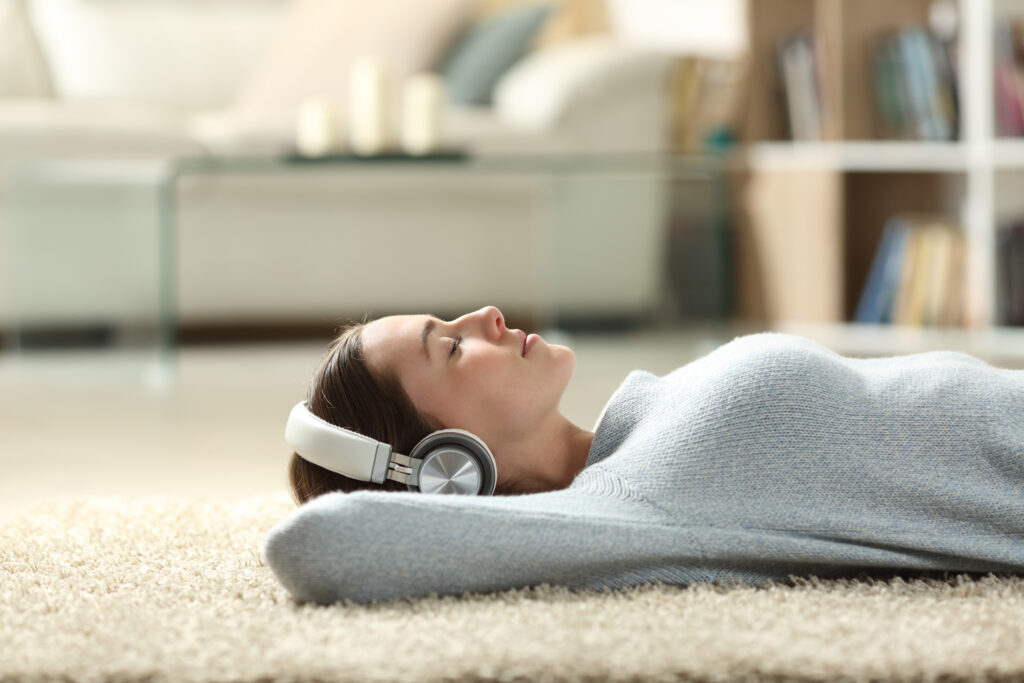
While cannabis is known for its calming, sedative properties, it’s also known to sometimes induce anxiety or paranoia. Why is that? How could something that is supposed to help you relax do the complete opposite? What can you do to quell the anxiety once it has festered?
Why THC May Cause Anxiety
Rest assured, if you suddenly feel anxious after using cannabis, the discomfort won’t last forever. Although it may feel like forever, it’ll probably wear off in about 30 minutes if you smoked or vaporized cannabis. However, if you took an edible, the effects of cannabis will take about one to three hours to wear off.
Before diving into how to calm THC-induced anxiety, let’s explore why it happens in the first place.
The Neurological Perspective
In a Journal of Psychopharmacology study, researchers did fMRI (functional magnetic resonance imaging) scans on seventeen volunteers who either received 8mg of THC, 8mg of THC with 10mg of CBD, or a placebo. They did this to assess the resting-state functional connectivity in their brains after cannabis.
In layman’s terms, they wanted to assess what happens in the brain that causes the phenomenon of being “stoned” or “high.”
Based on the fMRI scans, THC-induced disruptions between the default mode network and the posterior cingulate cortex were significantly associated with the participant’s feeling “stoned” or “high.” The group that received 8mg of THC (without any CBD) also had more widespread disruptions in brain’s salience network.
For further context, the default mode network (DMN) consists of several brain areas that remain active even when you’re in a “resting state.” Try it out — move away from the screen, take a deep breath, and clear your mind.
If you were able to achieve a “resting state,” you’ve just activated your default mode network. The discovery of the default mode network is fairly recent. Though, it has sparked a lot of research interest in uncovering whether it could be the basis for consciousness and other more philosophical topics.
The posterior cingulate cortex (PCC) is a central node within the DMN. It is theorized to play a role in “internally directed cognition” — i.e., the retrieval of personal memories and daydreaming. Additionally, it is believed the PCC may be involved in focus and planning for the future.
Lastly, the salience network is believed to act as a “switch” between higher activity within the DMN, allowing you to enter a resting, relaxed state. It may also affect executive functioning, decision-making, addiction, and memory.
In the fMRI study, the participants who took CBD and THC did not experience significant disruptions within the salience network. They also didn’t experience paranoia or anxiety like the group that only received THC.
Thus, it could be possible that THC-induced disruptions within the salience network are responsible for paranoia and anxiety. But this is just one theory, and there may be another mechanism that hasn’t yet been identified.
The Botanical Perspective: Certain Cannabinoids and Terpenes May Cause Anxiety
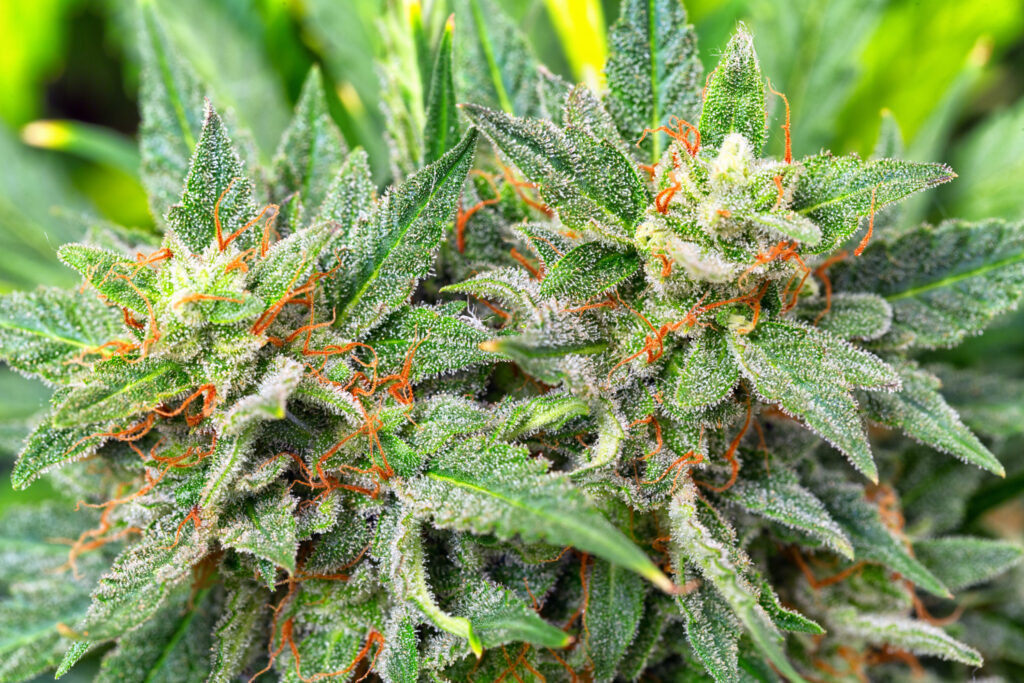
There is a widely-believed notion that the varying cannabinoid and terpene profile of cannabis gives each strain unique effects. This theory is known as the Entourage Effect, and it would help explain why some strains make you feel energetic and creative while others lull you into a sound slumber.
The Entourage Effect could also help explain why some strains are very calming while others may induce paranoia.
Using a strain that’s very high in THC and very low in CBD is more likely to cause anxiety than a strain with a 1:1 or even a 2:1 ratio of THC:CBD.
Some terpenes, such as limonene, are also strongly associated with “sativa”-like effects — they’re known to give you more of an “energetic buzz.” While this can stimulate productivity in some, it may cause anxiety for others. Limonene is also known to intensify the effects of THC and CBD.
That isn’t to say terpenes associated with these energetic effects are all bad. For example, limonene is also associated with antidepressant, anti-inflammatory, and antitumor activity.
But everybody reacts differently to the same strains of cannabis. That’s why it’s very important to keep a cannabis journal and log which strains work for you and which don’t.
When filling out your journal, you should also make note of the cannabinoids and terpenes present in the cannabis you’re using. In doing so, you’ll be able to identify the similarities between strains you really like; do they have similar terpene and cannabinoid profiles? If so, you’ll be able to use that information to find other strains you can enjoy.
The Environmental Perspective: Set and Setting
There’s a well-known practice within the psychedelic community called “set and setting.” Essentially, it’s widely believed your mindset and environmental ‘setting’ have an immense impact on your experience.
While this practice isn’t always taken into consideration with cannabis, it very well should be. Were you already anxious or repressing your stress before taking cannabis? Are you in an environment where you don’t feel safe or comfortable?
These factors could easily explain why you feel anxious after using cannabis. You were already anxious beforehand, and using cannabis just intensified those underlying feelings.
How to Reduce THC-Induced Anxiety
As said above, the anxiety will inevitably wear off. But if waiting it out feels unbearable, there are a few tricks you can have up your sleeve to help you come back down to Earth faster.
Black Peppercorn: The Magic of β-caryophyllene
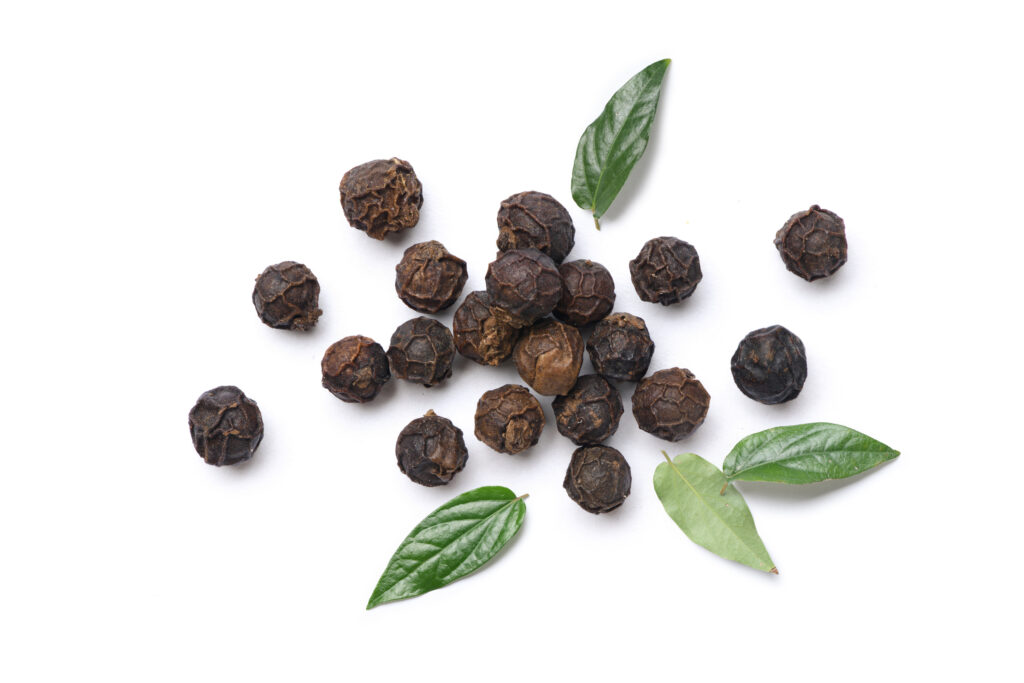
You may have heard before that chewing black peppercorn can help you calm down when you’re ‘too high.’ Sounds absurd, right? Well, it’s not.
Black peppercorn contains the terpene β-caryophyllene, which can help “alter” the Entourage Effect. Furthermore, β-caryophyllene is the only terpene that can interact with endocannabinoid receptors.
There’s actually some scientific merit to support this little trick — so try it out next time you feel too overwhelmed!
Take Some CBD to Cancel Out the Effects of THC
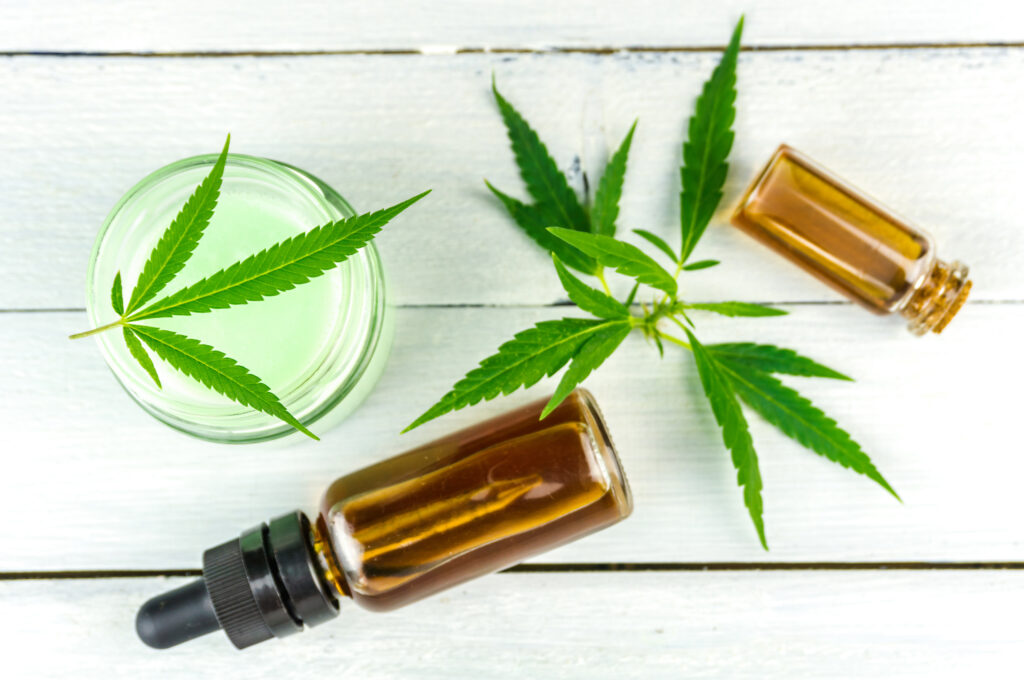
It might sound counterintuitive to fan the flames of cannabis-induced anxiety with another cannabis compound. But again, there’s strong evidence to support that CBD can reduce the intensity of THC.
Unlike other cannabinoids, CBD doesn’t agonize or antagonize endocannabinoid receptors. Instead, CBD is a negative allosteric modulator of CB1 and CB2 receptors. A negative allosteric modulator is a substance that binds to receptors and reduces their response to an agonist.
THC is an agonist of CB1 and CB2 receptors. Therefore, CBD can reduce both receptors’ response to THC.
Drink Plenty of Water

Not only is staying hydrated important, but drinking water can help your body dilute the concentration of THC in your bloodstream. Plus, if you’re too high, you probably have a nasty case of dry mouth anyways.
Relax and Keep Your Hands Busy
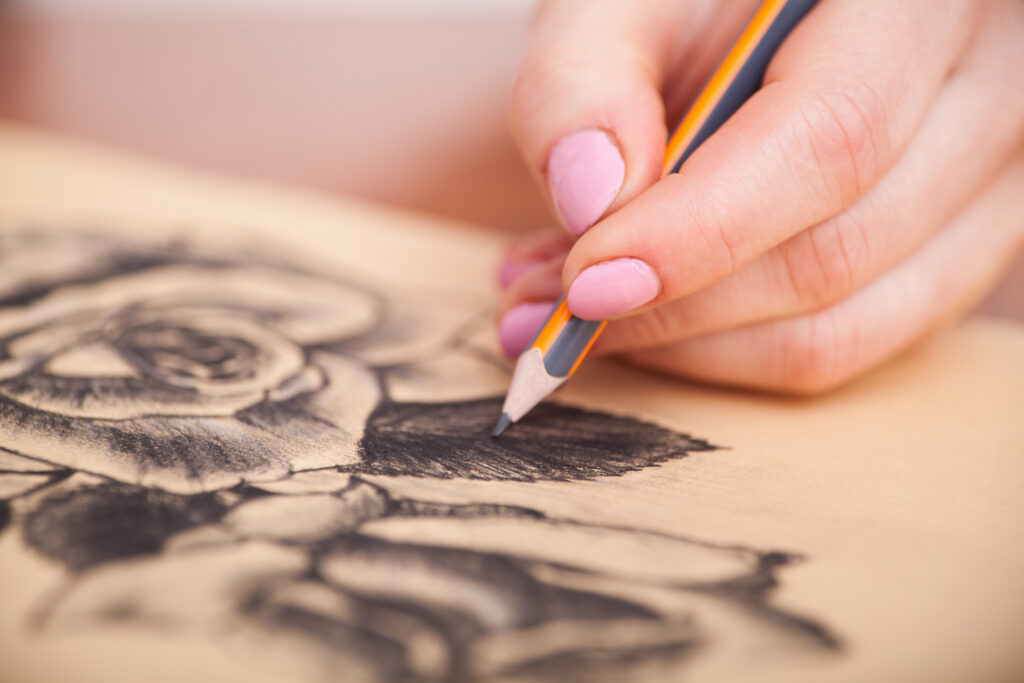
Sometimes putting on a happy, lighthearted movie isn’t enough to distract you when you’re feeling ‘too stoned.’ You need to keep your hands busy, too. So whip out a coloring book, do some drawing, play with an instrument, complete a puzzle — anything that will keep your hands and mind preoccupied.
Key Takeaways: There are Several Reasons Why THC May Cause Anxiety — And Plenty of Ways to Beat it

Although cannabis can help you unwind after a long, hard day, it can sometimes amplify your stress and anxiety even further.
Several theories may explain why THC sometimes causes anxiety. From a neurological perspective, it may result from THC-induced disruptions within your brain’s salience network.
From a botanical perspective, the combination of cannabinoids and terpenes in the strain you’re using may be too stimulating and may be more likely to induce anxiety instead of relaxation.
And from an environmental perspective, it may have to do with your mindset and the physical setting you’re in while indulging in cannabis.
In reality, the answer to this question is more likely than not a combination of all of these factors together. But rest assured, THC-induced anxiety won’t last forever — even if it feels like forever while you’re waiting it out.
And if you are feeling too overwhelmed or too stoned, you can try chewing on black peppercorn, taking some CBD, drinking plenty of water, and keeping your hands busy to help calm down.
To learn more about the effects of cannabis on mental health, check out episode 9 of the Cannabis Science Today podcast. In this episode, host Emily Fata interviews Dr. Mark Braunstein about his experiences with using medical cannabis to treat patients with trauma and other mental health conditions.
References
- Wall, M. B., Pope, R., Freeman, T. P., Kowalczyk, O. S., Demetriou, L., Mokrysz, C., Hindocha, C., Lawn, W., Bloomfield, M. A., Freeman, A. M., Feilding, A., Nutt, D., & Curran, H. V. (2019, April 23). Dissociable effects of cannabis with and without cannabidiol on the human brain’s resting-state functional connectivity. Journal of Psychopharmacology, 33(7), 822–830. https://doi.org/10.1177/0269881119841568
- Greicius, M. D., Krasnow, B., Reiss, A. L., & Menon, V. (2002, December 27). Functional connectivity in the resting brain: A network analysis of the default mode hypothesis. Proceedings of the National Academy of Sciences, 100(1), 253–258. https://doi.org/10.1073/pnas.0135058100
- Leech, R., & Sharp, D. J. (2013, July 18). The role of the posterior cingulate cortex in cognition and disease. Brain, 137(1), 12–32. https://doi.org/10.1093/brain/awt162
- Backes, M., & Md, W. A. (2017, November 14). Cannabis Pharmacy: The Practical Guide to Medical Marijuana — Revised and Updated (New). Black Dog & Leventhal.
- Morales, P., Hurst, D. P., & Reggio, P. H. (2017). Molecular Targets of the Phytocannabinoids: A Complex Picture. Progress in the Chemistry of Organic Natural Products, 103–131. https://doi.org/10.1007/978-3-319-45541-9_4